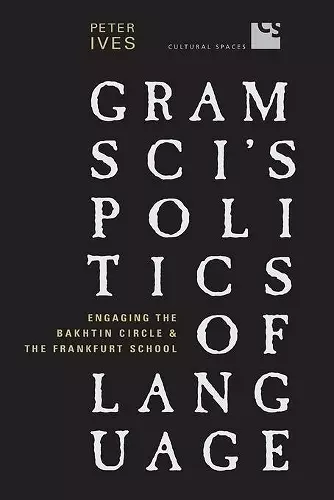Gramsci's Politics of Language
Engaging the Bakhtin Circle and the Frankfurt School
Format:Paperback
Publisher:University of Toronto Press
Published:12th May '06
Currently unavailable, and unfortunately no date known when it will be back

'I was completely fascinated by Gramsci's Politics of Language ... The scholarship is excellent, and I believe that the book will make a significant contribution both to scholarly writing on Gramsci, in particular, and to social and political theory more generally.' -- Richard Gruneau, School of Communication, Simon Fraser University
Gramsci's Politics of Language fills a crucial gap in scholarship, linking Gramsci's writings to current debates in social theory and providing a framework for a thoroughly historical-materialist approach to language.
Antonio Gramsci and his concept of hegemony have permeated social and political theory, cultural studies, education studies, literary criticism, international relations, and post-colonial theory. The centrality of language and linguistics to Gramsci's thought, however, has been wholly neglected. In Gramsci's Politics of Language, Peter Ives argues that a university education in linguistics and a preoccupation with Italian language politics were integral to the theorist's thought. Ives explores how the combination of Marxism and linguistics produced a unique and intellectually powerful approach to social and political analysis.
To explicate Gramsci's writings on language, Ives compares them with other Marxist approaches to language, including those of the Bakhtin Circle, Walter Benjamin, and the Frankfurt School, including Jürgen Habermas. From these comparisons, Ives elucidates the implications of Gramsci's writings, which, he argues, retained the explanatory power of the semiotic and dialogic insights of Bakhtin and the critical perspective of the Frankfurt School, while at the same time foreshadowing the key problems with both approaches that post-structuralist critiques would later reveal. Gramsci's Politics of Language fills a crucial gap in scholarship, linking Gramsci's writings to current debates in social theory and providing a framework for a thoroughly historical-materialist approach to language.
- Winner of Raymond Klibansky Prize 2005 (Canada)
ISBN: 9780802094445
Dimensions: 229mm x 152mm x 18mm
Weight: 360g
288 pages